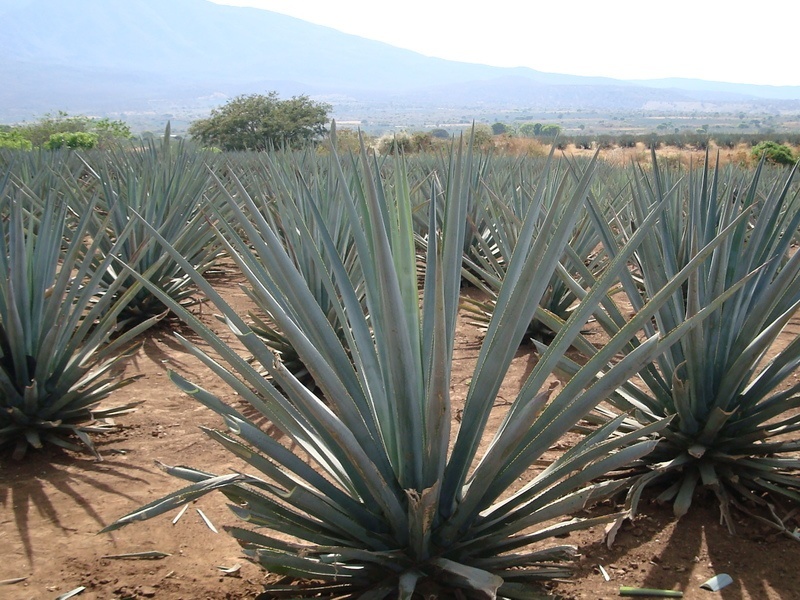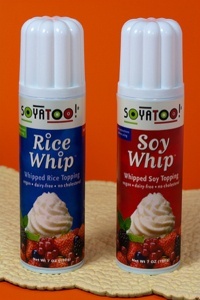The Problem with Agave Syrup
0
Comments (7)

I like to advocate most things in moderation, which obviously includes vegan baked goods. Sweets are in no way, shape or form a part of a healthy diet. Even if you take the sugar completely out of baked goods, the refined flour alone will probably spike your blood sugar to unhealthy levels. That said, sweets sure are fun to eat every once in awhile aren't they? I believe there are certain food products that don't apply to the everything in moderation mantra and they should be avoided as much as possible. These unhealthy food products can usually easily be substituted by other products that are less detrimental to health, with virtually no reduction in the quality of the baked item. If we can do this, then why the heck not? What food products am I talking about? Partially hydrogenated oils and high fructose corn syrup come to mind. Recently there has been talk of a new food product that might need to be added to this list: agave syrup.
I know what you're thinking and it sounds exactly like Darth Vader screaming "Nooo!" Not our beloved agave syrup that we've only now just gotten used to baking with! It all started with a tabloid-esque Mercola article (who's URL has either been deleted, moved or changed so I can no longer link to it) which explained several times (with liberal caps usage peppered throughout just in case you didn't get it the first time you read it) that agave syrup contains more fructose than... wait for it... our old friend high fructose corn syrup. The article goes on to claim that agave syrup contains equal to or greater than 80 percent fructose which is significantly higher than the fructose levels in high fructose corn syrup. The article also mentioned other downfalls like poor manufacturing quality, pesticides and other harmful chemicals that supposedly hamper lots of agave syrups nutritionally which I'll touch on later. Naturally this sent shockwaves through the blogosphere, veganosphere and the rawisphere.
What's so bad about fructose? It's basically poison. Don't believe me? Check out this fascinating talk called Sugar - The Bitter Truth by Robert H. Lustig, MD, UCSF Professor of Pediatrics in the Division of Endocrinology. The whole point of Dr. Lustig's talk is to convince you that fructose is poison. In a nutshell: Fructose is metabolized the same way as alcohol; in your liver. This has several theoretical drawbacks, some of which are listed below.
- Since fructose is metabolized in your liver you don't get the signal to stop eating like you do when eating other sugars what are metabolized in the intestines.
- Metabolizing fructose in the liver creates harmful compounds that can lead to weight gain.
- Sucrose, otherwise known as table sugar, consists of roughly 50 percent fructose and 50 percent glucose. Since it's two sugars in one, it's what's known as a disaccharide. Sucrose needs to have these sugars broken apart in order to be metabolized which is one extra step that slows down it's absorption. Roughly 50 percent of sucrose is glucose, which is absorbed in the intestines and more easily used by the body as fuel. Fructose is a monosaccharide or single sugar which is absorbed faster due to it not needing to be split into two sugars.
It's interesting to see the reactions of many people who frequently use agave syrup products and rely on them in their food products. Many of these people are trying to protect their interests. Many are attacking the Mercola article that mentioned the problem of poor manufacturing quality, pesticides and other chemicals supposedly often used in agave syrup production and almost completely ignoring the fructose issue. Even if you had pristine manufacturing conditions that produce pure agave (and no doubt there are) you'd still be marketing a sweetener that has significantly more fructose than high fructose corn syrup. You would need quite a miracle of engineering to cut the fructose levels down about 30 percent to bring it in line with regular old granulated sugar (sucrose). My guess is that this is pretty unlikely to happen. Even then, granulated sugar would still be significantly cheaper and far easier to bake with. Others are saying that this study has only been done in the lab and has not been replicated on humans. True, but it's starting to get pretty obvious that high fructose corn syrup may be a major contributor to the obesity problem in Western diets. So far that "study" has been going on in the entire Western human population for almost 40 years now.
I'm not pouring my agave syrup down the drain just yet. It has some great uses in vegan baking in small amounts; a dash of it in sugar syrups does a great job at keeping it from recrystallizing for example. However, I am going to think twice before using it as a primary sweetener until I find legitimate information countering the high levels of fructose it supposedly contains.
What do you think?
Blue Agave by jay8085 via Flickr






